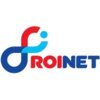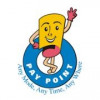Filter interviews by
CapitalOne Interview Questions and Answers
CapitalOne Interview Experiences
81 interviews found
I appeared for an interview in Feb 2025.
(1 Question)
- Q1. General Job fit interview questions. They said they'd ask 3. They asked way more than 3 lmao. They asked like 15+ or something. They didn't stop until an hour went by.
(1 Question)
- Q1. Asked about past experience
Based off 3 software testing schedules, figuring out what way to test software is fastest while still meeting minimum testing requirements
Interview Preparation Tips
I applied via Company Website and was interviewed in Oct 2024. There was 1 interview round.
Asked to write a bank application - which includes adding,removing,transferring of money
(3 Questions)
- Q1. Case study of shareride
- Q2. Case study of amusement park
- Q3. Case study of airplane
Bq questions like tell me a time
Mathematical questions similar to CAT DILR
(1 Question)
- Q1. Breakeven analysis for term life insurance policy
- Ans.
Breakeven analysis helps determine when the total cost of a term life insurance policy equals the total benefits received.
Breakeven point is when total premiums paid equal total death benefits received.
Factors affecting breakeven point include age, health, coverage amount, and policy length.
Example: If a policyholder pays $500/year for a $500,000 policy and dies after 10 years, breakeven point is reached.
Consider infla...
Hard que multiple que scattered economics shares average etc
Easy case study question breakeven etc
Moderate case study related to finance sector
Hard case study deep analysis required
(1 Question)
- Q1. Behaviour question round by HR easy to moderate
(1 Question)
- Q1. They asked Java coding question
Associate Software Engineering Intern Interview Questions & Answers
posted on 16 Dec 2024
DSA type questions later asked with Time complexity
(1 Question)
- Q1. Take home project which is later discussed on VO
I appeared for an interview in Mar 2025, where I was asked the following questions.
- Q1. First online test. Second round , they will ask you to make a program. Not difficult
- Q2. System design, not difficult
Director and Distinguished Member of Technical Staff Interview Questions & Answers
posted on 24 Apr 2024
I applied via LinkedIn and was interviewed in Mar 2024. There was 1 interview round.
(3 Questions)
- Q1. Manager screening
- Q2. Asked about basic AI/ML
- Q3. How do you manage your prompt?
- Ans.
Effective prompt management involves clarity, context, and adaptability to ensure accurate and relevant responses.
Clarity: Clearly define the objective of the prompt to avoid ambiguity. For example, instead of asking 'Tell me about technology,' specify 'Discuss the impact of AI on healthcare.'
Context: Provide background information or context to guide the response. For instance, 'In the context of renewable energy, exp...
Interview Preparation Tips
I didn't feel good about working with the manager either. For me, it's not just the job; teamwork and collaboration matter.
I applied via Naukri.com and was interviewed in Aug 2024. There was 1 interview round.
DSA leetcode on hackerrank
Top trending discussions






CapitalOne Interview FAQs
The duration of CapitalOne interview process can vary, but typically it takes about less than 2 weeks to complete.
Tell us how to improve this page.
CapitalOne Interviews By Designations
- CapitalOne Analyst Interview Questions
- CapitalOne Senior Software Engineer Interview Questions
- CapitalOne Business Analyst Interview Questions
- CapitalOne Associate Interview Questions
- CapitalOne Software Engineer Interview Questions
- CapitalOne Senior Business Analyst Interview Questions
- CapitalOne Senior Associate Interview Questions
- CapitalOne Data Analyst Interview Questions
- Show more
Interview Questions for Popular Designations
- Analyst Interview Questions
- Associate Interview Questions
- Business Analyst Interview Questions
- Senior Software Engineer Interview Questions
- Software Engineer Interview Questions
- Senior Business Analyst Interview Questions
- Software Developer Interview Questions
- Senior Engineer Interview Questions
- Show more
Overall Interview Experience Rating
based on 45 interview experiences
Difficulty level
Duration
Interview Questions from Similar Companies
CapitalOne Reviews and Ratings
based on 58 reviews
Rating in categories
|
Senior Associate
33
salaries
| ₹26.2 L/yr - ₹40 L/yr |
|
Principal Associate
23
salaries
| ₹41.6 L/yr - ₹61 L/yr |
|
Software Engineer
19
salaries
| ₹11.1 L/yr - ₹21.9 L/yr |
|
Senior Software Engineer
12
salaries
| ₹30 L/yr - ₹47 L/yr |
|
Senior Manager
12
salaries
| ₹54.6 L/yr - ₹107 L/yr |

FIS

Wibmo

OneCard

ROI NET Solution
- Home >
- Interviews >
- CapitalOne Interview Questions















